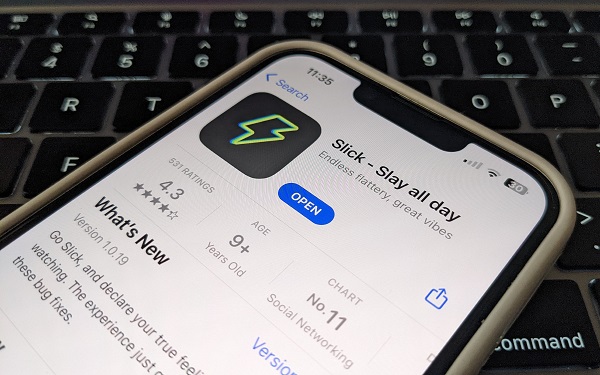
Emerging Indian social media app Slick left an internal database containing users’ personal information, including data of school-going children, publicly exposed to the internet for months.
Since at least December 11, a database containing full names, mobile numbers, dates of birth, and profile pictures of Slick users was left online without a password.
Bengaluru-based Slick launched in November 2022 by former Unacademy executive Archit Nanda after pivoting from crypto and closing his earlier startup CoinMint. His latest venture, Slick, is available on both Android and iOS and works similarly to Gas, a compliments-based app that is popular in the United States. The app also allows school and college students to talk with and about their friends anonymously.
Security researcher Anurag Sen from CloudDefense.ai found the exposed database, and asked TechCrunch for help in reporting the incident to the social media startup. Slick secured the database a short time after TechCrunch reached out on Friday.
Due to a misconfiguration, anyone familiar with the database’s IP address could access the database, which contained entries of over 153,000 users at the time it was secured. TechCrunch also found that the database could be accessed by an easy-to-guess subdomain on Slick’s main website.
The researcher also informed the India’s computer emergency response team, known as CERT-In, the country’s lead agency for handling cybersecurity issues.
Nanda confirmed to TechCrunch that Slick fixed the exposure. It’s not known if anyone other than Sen found the database before it was secured.
Slick attracted many younger users in India shortly after debuting last year. Earlier this month, Nanda took to Twitter to announce that the app crossed 100,000 downloads.
ata breaches can be extremely harmful to organizations of all shapes and sizes — but it’s how these companies react to the incident that can deal their final blow. While we’ve seen some excellent examples of how companies should respond to data breaches over the past year — kudos to Red Cross and Amnesty for their transparency — 2022 has been a […]
If you recently made a purchase from an overseas online store selling knockoff clothes and goods, there’s a chance your credit card number and personal information were exposed. Since January 6, a database containing hundreds of thousands of unencrypted credit card numbers and corresponding cardholders’ information was spilling onto the open web. At the time it […]
The holiday season is almost over, but security patches are still continuing to arrive thick and fast in December. The month has seen updates released by Apple, Google, and Microsoft, as well as enterprise software companies including the likes of SAP, Citrix, and VMWare. Many of the patches fix zero-day vulnerabilities already being exploited in […]
Leave a Reply